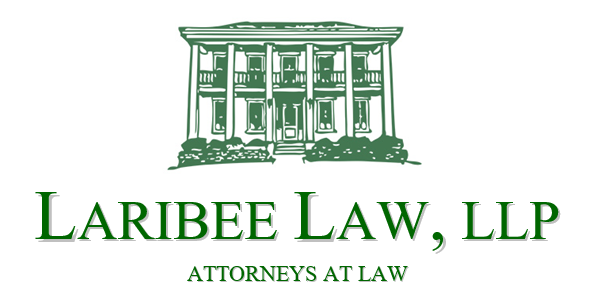Who is a Suitable Guardian?
Michael L. Laribee, Esq.
I have written previously about the basics of guardianships in Ohio. The purpose of a guardianship is to protect the rights of a person who is unable to manage his or her own affairs due to mental illness, physical illness, intellectual disability, or chronic substance abuse. That person is known as a ward. Guardians serve to protect the ward’s health and finances.

But who may serve as a guardian? The Ohio Revised Code defines a guardian as “any person, association, or corporation appointed by the probate court to have the care and management of the person, the estate, or both of an incompetent or minor.” By definition, guardians do not need to be people. Agencies, like those that contract with the Department of Developmental Disabilities often act in the role as guardian. As a general rule, a guardian of a ward’s assets must be a resident of the state of Ohio. A guardian of a ward’s health may live outside of Ohio, but probate courts often prefer guardians who live in the same county as the ward.
The guardianship process begins with an application by a party seeking to be a guardian.
The applicant must list their relationship with the proposed ward, the length of time the applicant has known the ward, and a history of who has provided care for the ward and has assisted with the ward’s financial affairs. The applicant must also disclose if they have been charged or convicted of a crime involving theft, physical violence, or sexual, alcohol, or substance abuse
The probate court must conduct a hearing to consider the application. Provided that the court finds a guardianship is necessary, it must then decide whether appointing the applicant is in the best interest of the ward. The probate court has broad discretion in its decision.
Often times, more than one applicant applies to be guardian over a ward and the probate court must choose the more suitable candidate. The court is not required to appoint the first applicant to file; it must appoint the applicant who will fulfill the fiduciary duties of the guardian best.
To avoid this conflict, a person may nominate a preferred guardian long before a guardianship is even necessary. This can be done in a last will and testament or in a durable power of attorney. The person can even give power to the nominated guardian to name a successor guardian for consideration by a court. To be effective, the writing must be signed by the person making the nomination in the presence of two witnesses or acknowledged by the person making the nomination before a notary public. The writing may be filed with the probate court for safekeeping, although it should be replaced with an updated document if someone new is nominated.
If the nomination is done correctly, the probate court must then give preference to the nominated person over another applicant provided the court finds that the person nominated is competent, suitable, and willing to accept the appointment.
It is important to understand, however, that the probate court is the superior guardian of a ward at all times. The probate court delegates powers to a guardian who becomes the probate court’s agent. The probate court reviews all actions of the guardian and may remove the guardian if he fails to fulfill his obligations to the ward or follow orders of the court.
Have legal questions related to probate law? It is important to consult with a trusted probate attorney before executing any documents which nominate a future guardian. Failure to execute a nomination properly may result in the appointment of a guardian who was not the ward’s preferred choice. Laribee Law, LLP can guide you through this process.
Michael Laribee is a partner in the Medina law firm of Laribee Law, LLP. This article is intended to provide general information about family law. It is not intended to give legal advice. Readers are urged to seek advice from an attorney regarding their specific issues and rights.
To contact an attorney at Laribee Law, LLP, request more information about our legal services now!
Related law article:
Basics of Guardianships in Ohio
Our Location:
325 N. Broadway Street
Medina, Ohio 44256
NOTE: The use of the Internet for communications with the firm will not establish an attorney-client relationship and messages containing confidential or time-sensitive information should not be sent.
The information you obtain at this site is not, nor is it intended to be, legal advice. You should consult an attorney for individual advice regarding your own situation.


